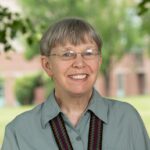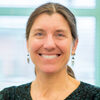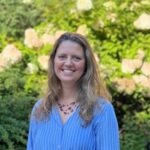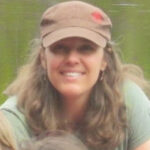
- This event has passed.
Workshop: Toolkit Resources to Help Understand and Manage Campus Food Waste
March 14, 2024 @ 2:00 pm - 5:00 pm EDT
Join us to start to develop an understanding of how and where your campus generates food waste (FW) and then how you can use that to lay out a framework to create a comprehensive food waste management plan.
It’s everywhere on our campuses! It is obvious that FW is generated in dining facilities, but to-go boxes, grab and go, catering events, on-campus apartments also contribute to the complex and dispersed manner in which waste is generated, which complicates its collection for recovery or recycling. Getting a handle on the nature of FW generation is a critical first step towards developing a comprehensive FW management plan. The goal of this workshop is to help campus teams develop the skills and resources necessary to initiate or expand their FW Management Plans. We will use a toolkit throughout the workshop to walk attendees through the process of identifying sources of FW; auditing or estimating food waste generation; understanding the culture and attitudes of your campus toward managing FW; and identifying relevant collection, recovery or recycling options to keep this resource out of landfills.
The toolkit we will use was recently developed based on a five-university comprehensive FW management study and review of efforts on a number of other campuses. The toolkit includes education and outreach materials, templates and instructions for each step in the process of understanding and managing your FW from sources across campus.
The tools and resources help to connect groups on a campus who have the same goals. Dining services, Fac Ops, and Students all have sustainability goals that they are encouraged to reach including climate action plans on campuses. Each of these groups need each other to reach these goals. The information from our project is valuable to all of the groups and working together helps engender trust, connection, and understanding. Thus, participation by campus teams is encouraged with representatives who manage waste (sustainability or facilities), students and dining services. Each team will work together to start to understand their own FW issues and apply the templates and process to their own campus. Participants will take home tangible work representing a start of their own efforts to implement a plan on their own campus.
Key Details
Registration Fees*
| Registration Type | Registration Fee |
| Individual (non-student) associated with an AASHE member organization* | $95 |
| Individual (non-student) not associated with an AASHE member organization | $125 |
| Student | $50 |
* To check if your organization is a current AASHE member, please search the AASHE Membership Directory.
Discounts are available for group registration. A limited number of scholarships are available to individuals who need financial assistance to participate. Please apply two weeks before the program begins (e.g.,2/29/2024) to be considered for a scholarship for this workshop.
Registration Policies:
- Registration deadline is Thursday, March 14, 12:00 p.m. ET.
- Payment is accepted in the form of Visa, MasterCard, American Express and Discover cards.
If you need to pay by check or ACH, please contact us at least 5 weeks prior to the event start date. Registration using these forms of payment must be received 4 weeks prior to the event start date and full payment must be received by AASHE within 2 weeks of event start date. - Cancellation Policy: A 20% processing fee applies to any cancellation prior to March 4, 2024. No refunds will be given after March 4, 2024.
- No substitutions are allowed.
- Registered participants will receive access to the recording after the live event.
- Review all Terms & Conditions.
Facilitators
Susan Powers, Professor and Director, Institute for a Sustainable Environment, Clarkson University
 Susan E. Powers is the Spence Professor of Sustainable Environmental Systems and the Director of the Institute for a Sustainable Environment at Clarkson University. Her decades of education and scholarly work are integrated through applied research on aspects of engineering and broader STEM education. She has had several grants that couple campus sustainability projects and applied research with student opportunities. She has promoted and assessed the value of utilizing relevant project-based experiences to improve solid & food waste, energy and climate change literacy of audiences from middle school students through to state agencies. The goal in all of these projects is to provide real-world, messy projects to students to enhance their technical education as well as team work, social perspectives, communication and sustainability as a critical project criterion.
Susan E. Powers is the Spence Professor of Sustainable Environmental Systems and the Director of the Institute for a Sustainable Environment at Clarkson University. Her decades of education and scholarly work are integrated through applied research on aspects of engineering and broader STEM education. She has had several grants that couple campus sustainability projects and applied research with student opportunities. She has promoted and assessed the value of utilizing relevant project-based experiences to improve solid & food waste, energy and climate change literacy of audiences from middle school students through to state agencies. The goal in all of these projects is to provide real-world, messy projects to students to enhance their technical education as well as team work, social perspectives, communication and sustainability as a critical project criterion.
Jan DeWaters, Associate Professor, Clarkson University
 Jan DeWaters is an associate professor in the Institute for STEM Education at Clarkson University, with a joint appointment in the School of Engineering. Her teaching and research are integrated through a focus on the complex interplay between engineering decisions and societal influences, and the relationship between technological developments and environmental/societal impacts. Her research explores the impacts of best practices in STEM education, with a focus on post-secondary engineering. As such, she develops, implements, and evaluates various non-traditional pedagogies such as project-based and place-based learning, in her own classrooms and in support of others. She has several years’ experience working with college students and community partners in outreach programs that focus on projects related to energy and environmental themes. In addition to her STEM education research, Jan has been involved in a number of food waste and resource recovery projects. These include a partnership between Clarkson and a nearby school district to create a cafeteria food waste separation program as well as food waste management efforts at the university and community level. Her focus has been developing the education and outreach components – including a variety of materials for K-12 classrooms, university communities, the general public (farmers markets, fairs), and a Food Waste Expo for K-12 students and community members.
Jan DeWaters is an associate professor in the Institute for STEM Education at Clarkson University, with a joint appointment in the School of Engineering. Her teaching and research are integrated through a focus on the complex interplay between engineering decisions and societal influences, and the relationship between technological developments and environmental/societal impacts. Her research explores the impacts of best practices in STEM education, with a focus on post-secondary engineering. As such, she develops, implements, and evaluates various non-traditional pedagogies such as project-based and place-based learning, in her own classrooms and in support of others. She has several years’ experience working with college students and community partners in outreach programs that focus on projects related to energy and environmental themes. In addition to her STEM education research, Jan has been involved in a number of food waste and resource recovery projects. These include a partnership between Clarkson and a nearby school district to create a cafeteria food waste separation program as well as food waste management efforts at the university and community level. Her focus has been developing the education and outreach components – including a variety of materials for K-12 classrooms, university communities, the general public (farmers markets, fairs), and a Food Waste Expo for K-12 students and community members.
Lori Clark, Assistant Professor, St. Lawrence University
 Lori Clark is an assistant professor of Environmental Studies with a joint appointment in Public Health at St. Lawrence University. Her academic and research agenda focuses on the environmental effects of waste with special attention to climate and energy policy, public health, and water quality. She has been actively involved in waste related research since 2014, participating in municipal solid waste and recycling program audits, working on a solid waste management plan with the town of North Hempstead, and developing landfill gas models. She is a board member of the NY chapter of SWANA (Solid Waste Association of North America), where she coordinates technical webinars and has assisted with the annual NYFederation of Solid Waste conferences, and is a member of the executive committee for ASME – MER (Materials and Energy Recovery) division.
Lori Clark is an assistant professor of Environmental Studies with a joint appointment in Public Health at St. Lawrence University. Her academic and research agenda focuses on the environmental effects of waste with special attention to climate and energy policy, public health, and water quality. She has been actively involved in waste related research since 2014, participating in municipal solid waste and recycling program audits, working on a solid waste management plan with the town of North Hempstead, and developing landfill gas models. She is a board member of the NY chapter of SWANA (Solid Waste Association of North America), where she coordinates technical webinars and has assisted with the annual NYFederation of Solid Waste conferences, and is a member of the executive committee for ASME – MER (Materials and Energy Recovery) division.
Jennifer Perry, Co-Founder, Compost for Good
 Jennifer Perry is cofounder, project manager and grant writer for the community composting advocacy group Compost for Good (CfG). She is deeply passionate about all things related to soil health and playing a role in the community composting revolution emerging across the Northeast. She has been growing and selling vegetables in the Adirondacks for nearly two decades so a focus on organics recycling and the magic of composting is a natural transition. Jen and her partner own and operate River Valley Regeneratives LLC – a food scrap hauling and composting business where they built and operate a 5’x20’ rotating steel drum composter and a series of aerated static piles. Their system was inspired by a composter designed by CfG cofounder John Culpepper. Perry and Culpepper created an open sourced design document and operating manual which are freely available and posted on the CfG website.
Jennifer Perry is cofounder, project manager and grant writer for the community composting advocacy group Compost for Good (CfG). She is deeply passionate about all things related to soil health and playing a role in the community composting revolution emerging across the Northeast. She has been growing and selling vegetables in the Adirondacks for nearly two decades so a focus on organics recycling and the magic of composting is a natural transition. Jen and her partner own and operate River Valley Regeneratives LLC – a food scrap hauling and composting business where they built and operate a 5’x20’ rotating steel drum composter and a series of aerated static piles. Their system was inspired by a composter designed by CfG cofounder John Culpepper. Perry and Culpepper created an open sourced design document and operating manual which are freely available and posted on the CfG website.
Any questions about the workshop?
Please contact Daita Serghi, education@aashe.org